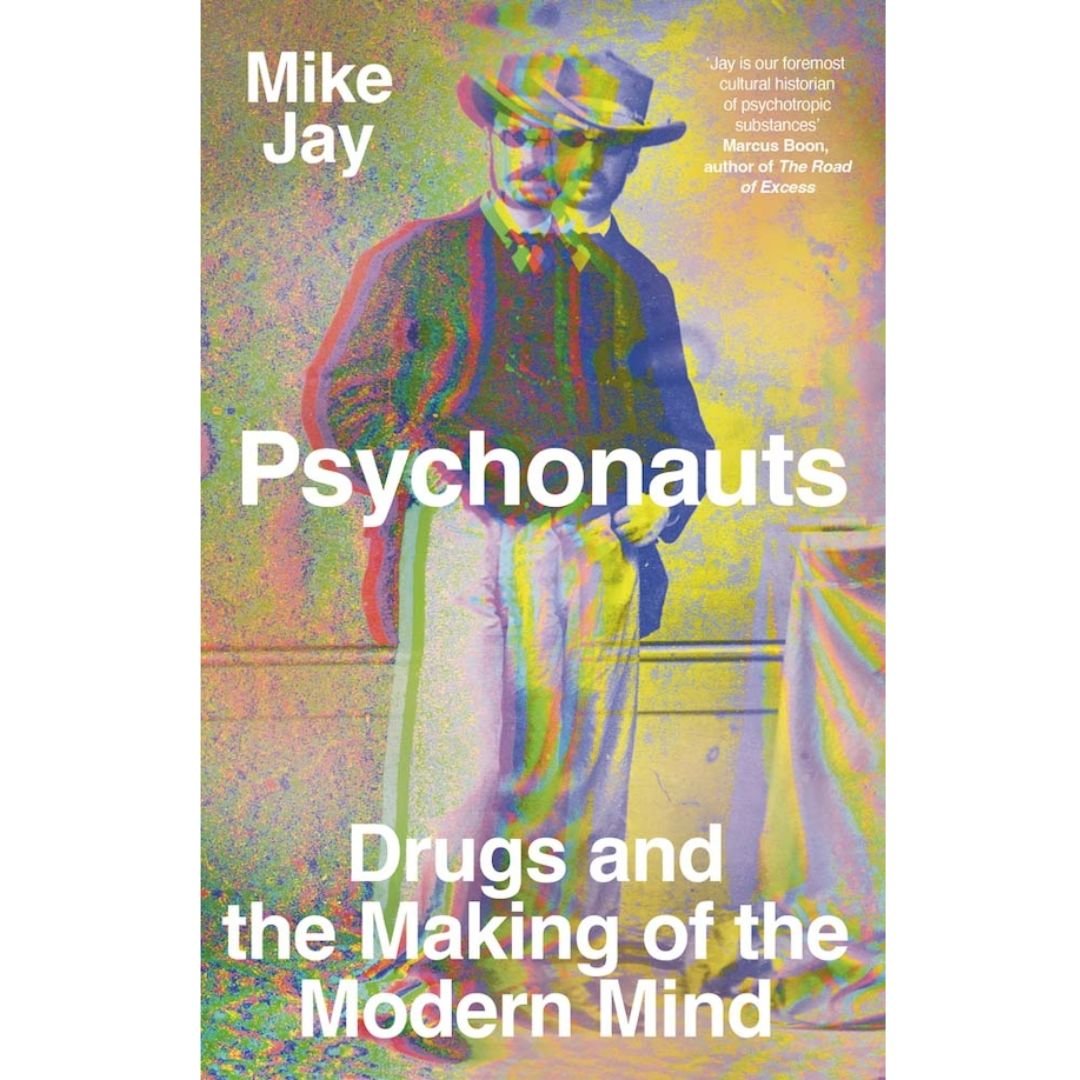Psychonauts Drugs and the Making of the Modern Mind by Mike Jay
Hardcover
376 pgs.
A provocative and original history of the scientists and writers, artists and philosophers who took drugs to explore the hidden regions of the mind
“Captivating. . . . A welcome reconsideration of the role drugs play in life, medicine, and science.”—Publishers Weekly
Until the twentieth century, scientists investigating the effects of drugs on the mind did so by experimenting on themselves. Vivid descriptions of drug experiences sparked insights across the mind sciences, pharmacology, medicine, and philosophy. Accounts in journals and literary fiction inspired a fascinated public to make their own experiments—in scientific demonstrations, on exotic travels, at literary salons, and in occult rituals.
But after 1900 drugs were increasingly viewed as a social problem, and the long tradition of self-experimentation began to disappear.
From Sigmund Freud’s experiments with cocaine to William James’s epiphany on nitrous oxide, Mike Jay brilliantly recovers a lost intellectual tradition of drug-taking that fed the birth of psychology, the discovery of the unconscious, and the emergence of modernism. Today, as we embrace novel cognitive enhancers and psychedelics, the experiments of the original psychonauts reveal the deep influence of mind-altering
drugs on Western science, philosophy, and culture.
Hardcover
376 pgs.
A provocative and original history of the scientists and writers, artists and philosophers who took drugs to explore the hidden regions of the mind
“Captivating. . . . A welcome reconsideration of the role drugs play in life, medicine, and science.”—Publishers Weekly
Until the twentieth century, scientists investigating the effects of drugs on the mind did so by experimenting on themselves. Vivid descriptions of drug experiences sparked insights across the mind sciences, pharmacology, medicine, and philosophy. Accounts in journals and literary fiction inspired a fascinated public to make their own experiments—in scientific demonstrations, on exotic travels, at literary salons, and in occult rituals.
But after 1900 drugs were increasingly viewed as a social problem, and the long tradition of self-experimentation began to disappear.
From Sigmund Freud’s experiments with cocaine to William James’s epiphany on nitrous oxide, Mike Jay brilliantly recovers a lost intellectual tradition of drug-taking that fed the birth of psychology, the discovery of the unconscious, and the emergence of modernism. Today, as we embrace novel cognitive enhancers and psychedelics, the experiments of the original psychonauts reveal the deep influence of mind-altering
drugs on Western science, philosophy, and culture.
Hardcover
376 pgs.
A provocative and original history of the scientists and writers, artists and philosophers who took drugs to explore the hidden regions of the mind
“Captivating. . . . A welcome reconsideration of the role drugs play in life, medicine, and science.”—Publishers Weekly
Until the twentieth century, scientists investigating the effects of drugs on the mind did so by experimenting on themselves. Vivid descriptions of drug experiences sparked insights across the mind sciences, pharmacology, medicine, and philosophy. Accounts in journals and literary fiction inspired a fascinated public to make their own experiments—in scientific demonstrations, on exotic travels, at literary salons, and in occult rituals.
But after 1900 drugs were increasingly viewed as a social problem, and the long tradition of self-experimentation began to disappear.
From Sigmund Freud’s experiments with cocaine to William James’s epiphany on nitrous oxide, Mike Jay brilliantly recovers a lost intellectual tradition of drug-taking that fed the birth of psychology, the discovery of the unconscious, and the emergence of modernism. Today, as we embrace novel cognitive enhancers and psychedelics, the experiments of the original psychonauts reveal the deep influence of mind-altering
drugs on Western science, philosophy, and culture.

